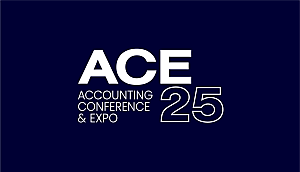In October 1984 I transferred into the Melbourne Tax Division of Arthur Andersen & Co, which, at the time, was one of the ‘Big 8’ accounting firms in the world. Thus began my career in the Australian tax system.
You’re out of free articles for this month
I thought some accountants would be interested in what has changed and what has not changed in the tax profession over the past 40 years. In this article (one of two), I will focus on, in my view, what has not changed.
Calls for tax reform – over the last 40 years there has been a constant refrain from the profession, industry and politicians: ‘We must reform the Australian tax system!’, ‘We must cut red tape!’ and ‘We must simplify the tax laws!’ While there have been some significant tax changes, the fact is tax reform, cutting red tape and simplifying the tax laws have proven to be very elusive and are basically in the ‘too hard’ basket. This is despite the numerous reviews of the taxation system, conferences, submissions on the topic and so forth.
When I started in the profession, I had one fat book of law. Now I have four fat books of law.
Revenue versus capital – the perennial problem of whether an item is on revenue account or capital account has remained. Whether from an income or deduction point of view, we still regularly have cases that weigh up this issue.
Personal exertion income – the taxation of personal exertion income (now known as personal services income) was problematic 40 years ago and it remains so. This is despite the efforts to legislate the issue with the introduction of Part 2-42 ITAA 1997. There is still widespread misunderstanding about this type of income and the recent issue of PCG 2024/D2 has added to the ongoing lack of clarity.
General anti-avoidance provision – when I commenced in the profession, no cases on the ‘new’ Part IVA had been decided. Over the decades, there has been a mixed set of outcomes with Part IVA. While we have some clarity on its operation, it has remained a very unpredictable provision.
Compliance remains alive – 40 years ago there were ‘wise’ people telling accountants to ‘get out of compliance’ work and do more consulting work. 40 years on, there are people still saying this. Yet, tax compliance work remains the bread and butter of most accounting practices that service the small and medium-sized business market.
There are reasons for this. First, the government keeps creating even more compliance. Second, if you want to increase your consulting work, there is nothing better than having direct access to your client entities' accounts and tax returns. Third, compliance work can be leveraged and delegated to younger staff while they are learning their trade.
I have never understood the call to accountants to drop their compliance work. If you have good systems and it is done efficiently, it can be a good source of income. If done well, it also enhances client relationships which leads to consulting work and referrals.
The complexity of the tax system – the Australian tax system remains complex. The way laws are written remains complex. There was an attempt to rewrite the Income Tax Assessment Act in the mid-1990s to reduce the complexity, but it failed. The tax law rewrite was never finished, and I suspect there is a strong chance it never will be.
What this also means is that the ‘hard grind’ of slowly reading and understanding the tax legislation has never gone away. The ability to tackle and overcome the often (near) incomprehensible legislation is still a key factor in sorting adults from children in the tax profession.
Client service – despite all of the changes in the tax system and technology, if you want to make money in the accounting profession, it is solidly based on good client service. This will never change.
People – as long as I have been in the accounting profession there has always been a struggle to get enough of the ‘right’ people. Attracting and retaining quality staff has been an issue for accounting firms of all sizes.
While I am talking about people, I will also touch on the somewhat sensitive topic of women in the profession. Although there have been some improvements, there has always been a desire to have more women in the senior and managerial ranks of the profession. This continues after 40 years.
Long hours – in my experience, the accounting profession has, for the most part, spent long hours in the office. Advances in technology have not resulted in reduced work. The reality is that technology has increased the workload.
John Jeffreys provides tax training and produces tax information for tax professionals. He is a director of John Jeffreys Tax.

 Login
Login






